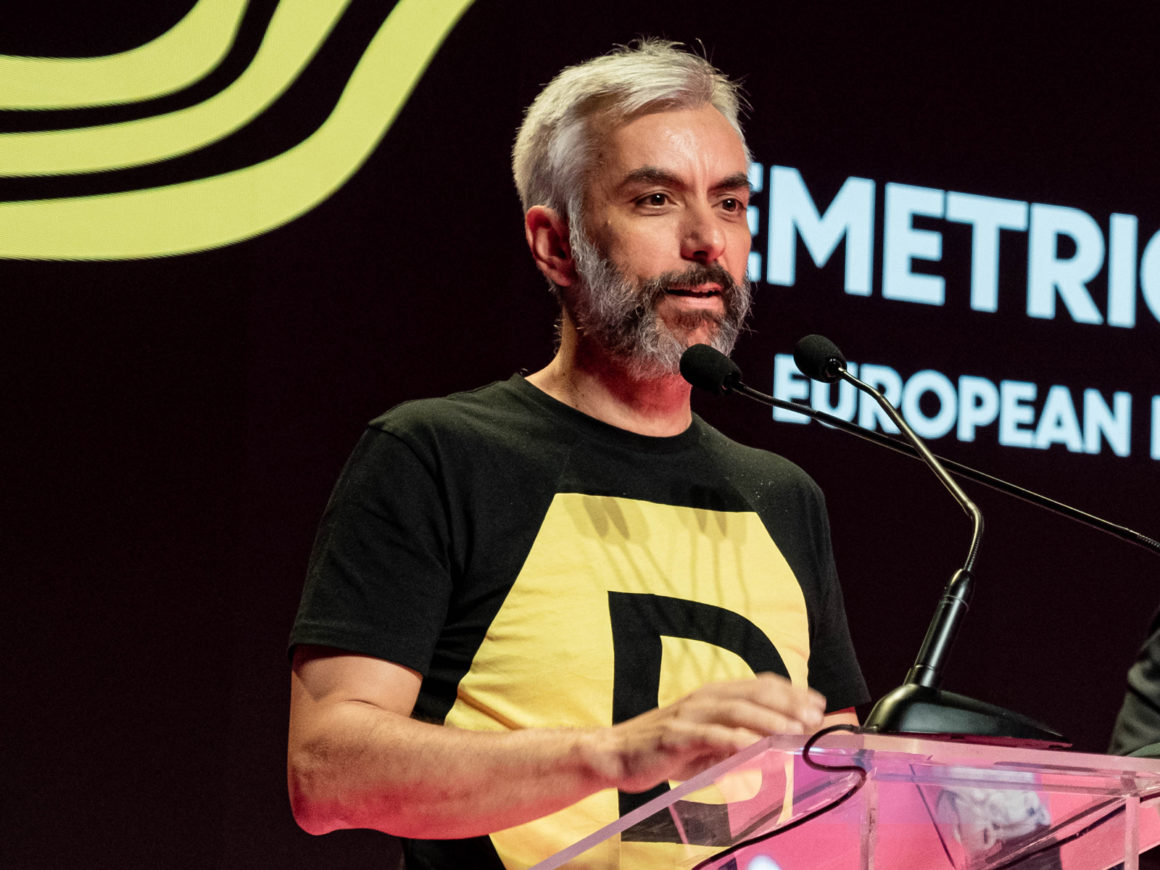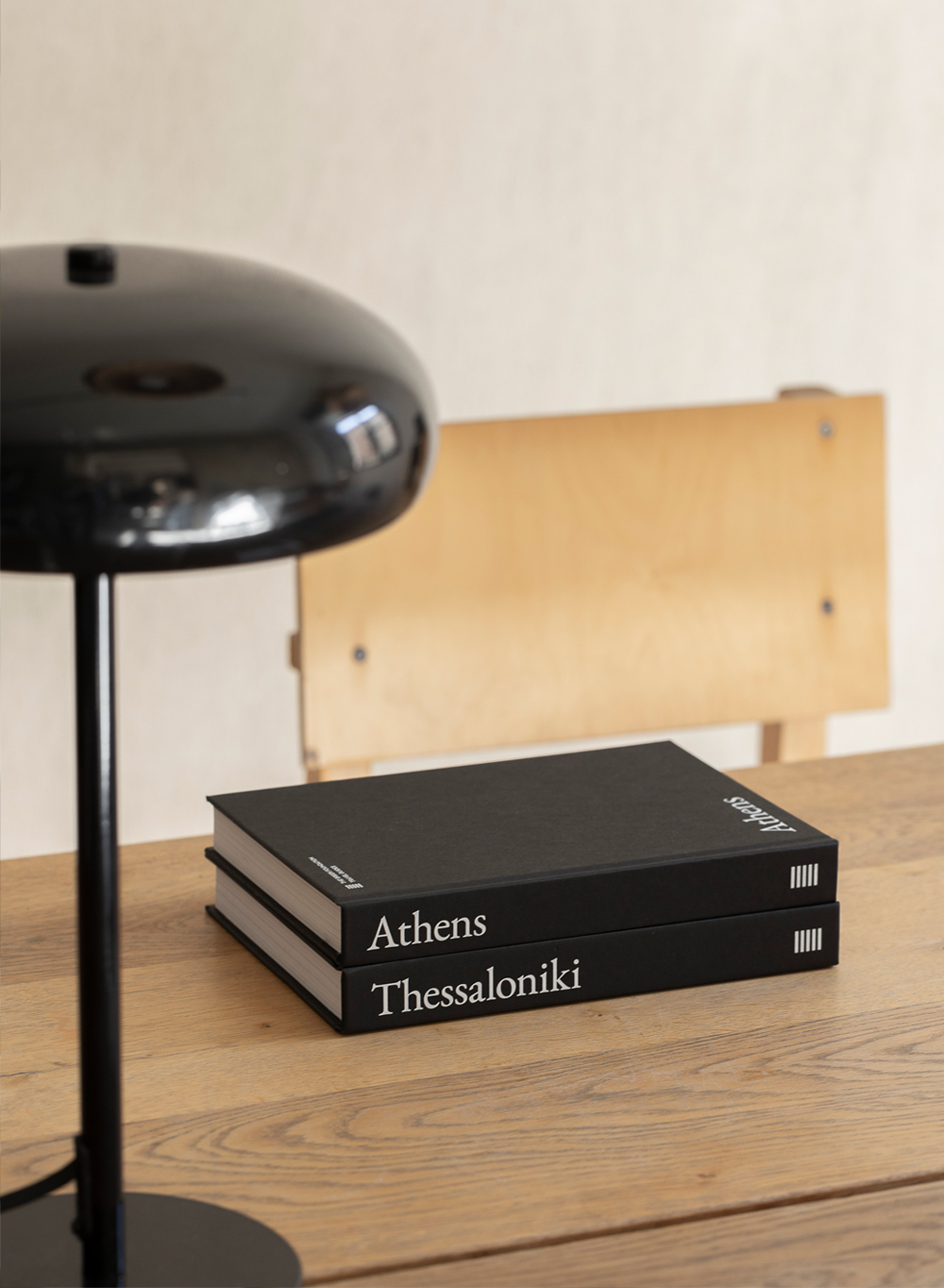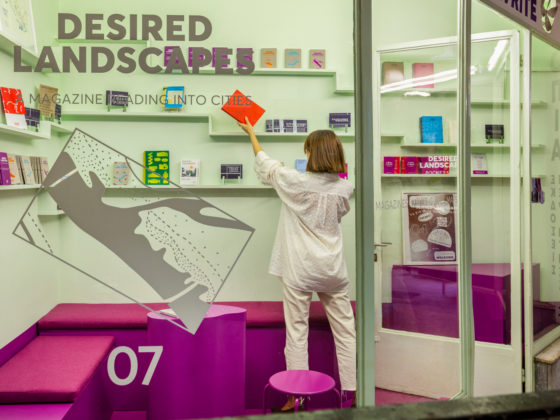Demetrios Fakinos entered the world of publishing in 1998 with +DESIGN (initially called DeltaD) and has been servicing the communication design scene ever since. In 2002 he initiated EBGE (Greek Graphic Design Awards). He organises (or co-organises) four annual conferences that cover the fields of communication design (DesignAthens), architecture and interior design (ESO), digital design (Digitized) and product/industrial design. Since 2007 he directs the European Design Awards and the accompanying festival. His professional career has granted him a central, critical role in the advancement and promotion of design initially in Greece and currently on an international level.
Coming from a very different background and studies in Business Administration, your career somehow evolved around Design and this has been your focus for many years now. Could you talk to us about that journey and what led you to this path?
Hard to believe but I’ve been in the field for 25 years already. I strongly believe that one of the main reasons for the success and longevity of my endeavor is precisely the fact that I’m not a designer myself. In the past, several designers attempted to cater to the design community, starting off with enthusiasm, inspiration, and good intentions. However, their efforts were short-lived as the demands of their profession eventually took over. Such a venture cannot simply be a “side project” as it requires one’s complete attention and energy to succeed, just like most professional endeavors.
My journey took me from Business studies to the family publishing house, to my “first baby”, a bimonthly magazine dedicated to my favorite subject (design). From there to organizing events and editions always on design. The rest is, as they say, history.
The Greek Graphic Design scene has become a global-level success story in recent years. Is this the result of a combined effort and systematic approach to Design in the country or just the positive outcome of circumstances (ie talented individuals)?
If by “systematic approach” you mean a state-led initiative, a “design centre” or anything like that, then the answer is a clear and straightforward “no”. I’d say this has been a happy circumstance. It was about a lot of young Greeks returning from studies abroad (in the UK, Germany, France, the Netherlands, Italy, etc). It was about having, for the first time, initiatives that were bringing the community together. Publications, conferences, online fora. It was about the Athens Olympics, which brought together a team of talented people working for a long time on a project that had great depth and width (as well as international exposure). It was about having an awards scheme that was setting standards, recognizing young talent, and bringing communication to the forefront. And of course, it was about individuals, who at last had the outlets they’ve always needed to showcase their work and gain recognition.
Is Greek Design on track to become a recognizable brand globally similar to other countries that have a very strong footprint like Japan or Denmark? How do you see the future of Greek Design?
I believe, there are fields where Greek design is already recognized. There are, as we speak, international clients of all sizes hiring Greek studios to work for example in packaging projects, as well as in animation/motion graphics projects. As long as the talent is here, I’m optimistic. Fortunately, people can live in Greece while working for foreign clients, employers, and projects, as the design profession can largely operate remotely. If all goes well, we may even see foreign designers living and working long-distance from Greece.
Are there any elements of Greekness that you recognize in the works of Greek Designers?
There are always studios that proactively look for inspiration coming from the Greek tradition. I can name quite a few projects that are doing an effort to incorporate what you call “Greekness” in their work. However, in the broader scope of things, it’s been many years since we’ve had what you’d call a very distinctive national “school” of design anywhere. Even designs that were once exclusively associated with their country of origin, such as Swiss, Scandinavian, or Dutch design, can now be found everywhere and have gone global. As a result, I’m not sure if there’s a real, non-academic point to discuss the concept of “Greekness” in design.
How did the Greek Design Awards (EBGE) start as an idea that you decided to pursue? What were the difficulties in becoming the reference point in the Greek Design scene?
The concept behind the Greek Design Awards evolved organically. +DESIGN magazine came out at the end of 1998 and it gave us an excellent platform from where we could launch all kinds of initiatives targeting the creative community. So, very quickly it became obvious that an organization like EBGE was missing and it would be something the community would benefit a lot by having.
When it comes to difficulties, I must confess that we were fortunate enough to encounter none. We were surrounded by people, both from Greece and abroad, who generously offered their assistance. The know-how they shared was instrumental in establishing an organization that operated with transparency and openness, which was quickly recognized and embraced by both the market and the general public.
How does the committee proceed to the nominations? Please describe the thinking process and criteria for selection.
The main criteria are common ground for all design competitions globally:
– Originality/concept
– Execution excellence
– Relevance to the brief
Added to that depending on the focus every time you can have things such as user-friendliness, sustainability, impact, etc. A committee must go through the submissions at length and discuss them in depth. Decisions are made based on a collective set of opinions, a careful evaluation, and deliberation, weighing the strengths and weaknesses of each submission in relation to the competition criteria.
And then Europe! Please talk us through your involvement in the European Design Awards.
Again things evolved organically. The European Design Awards came as an idea that stemmed from the success of EBGE. The thought was simple: to take the EBGE model a step further. To do this, I got in touch with the publishers of all Εuropean design magazines (back in 2006) and “sold” them the idea: to create an awards scheme that would be based on the magazines themselves (just like EBGE had done with +DESIGN). From there, we decided to always appoint journalists, editors, publishers, and academics of communication design to the juries. We, therefore, have not design practitioners, but rather design critics and curators, doing what they know best.
From the ED-Awards, the next step was the ED-Festival, an annual event that travels to a different European city every time and involves a conference, workshops, open houses, talks, exhibitions, etc, all centered around the ED-Awards ceremony. And we’ve been doing this since 2007.
How do you measure the success of a design?
The difference between design -an applied art-, compared to fine arts is that it serves a specific purpose provided by the client. The success of a design, therefore, is how well it serves the purpose for which it has been created.
Does design have the power to impact our lives in a meaningful and decisive way?
Of course, it does. Design is everywhere around us influencing our everyday life. It is in the chairs we sit on, the websites we browse, the apps we use to make things easier or more fun, the books we read to educate ourselves or to broaden our minds, the signage that guides us inside a building, or outside on the streets and the highways… I could go on forever, design encompasses everything we do. There should be no doubt whatsoever that design has the power to impact our lives in all ways thinkable.
How do you see technology and artificial intelligence impacting the world of Design?
Technology and artificial intelligence are already having a significant impact on the world of design, and this trend is likely to continue in the future. Overall, technology and AI are providing designers with new tools and capabilities that are helping them to create better designs, more efficiently, and with greater precision and personalization.
Any future plans that you’d like to share with us?
We (together with Sputnik Design) have just launched a new initiative called “Design Masters”. Our aim is to bring together the best practitioners of every field and create a platform that will allow them to disseminate their know-how and their experiences to a wider audience. The process for this involves a series of high-quality masterclasses in the form of practical workshops.
It is a project that we have been working on for roughly two years and it only launched a couple of months ago, so as you might understand for the immediate future our attention and energy are directed there. It will take some time before we’ll have more plans “to share”!
The Greek Foundation is a proud media sponsor of the Greek Communication Design Awards EBGE 2023. Click here for more info.







